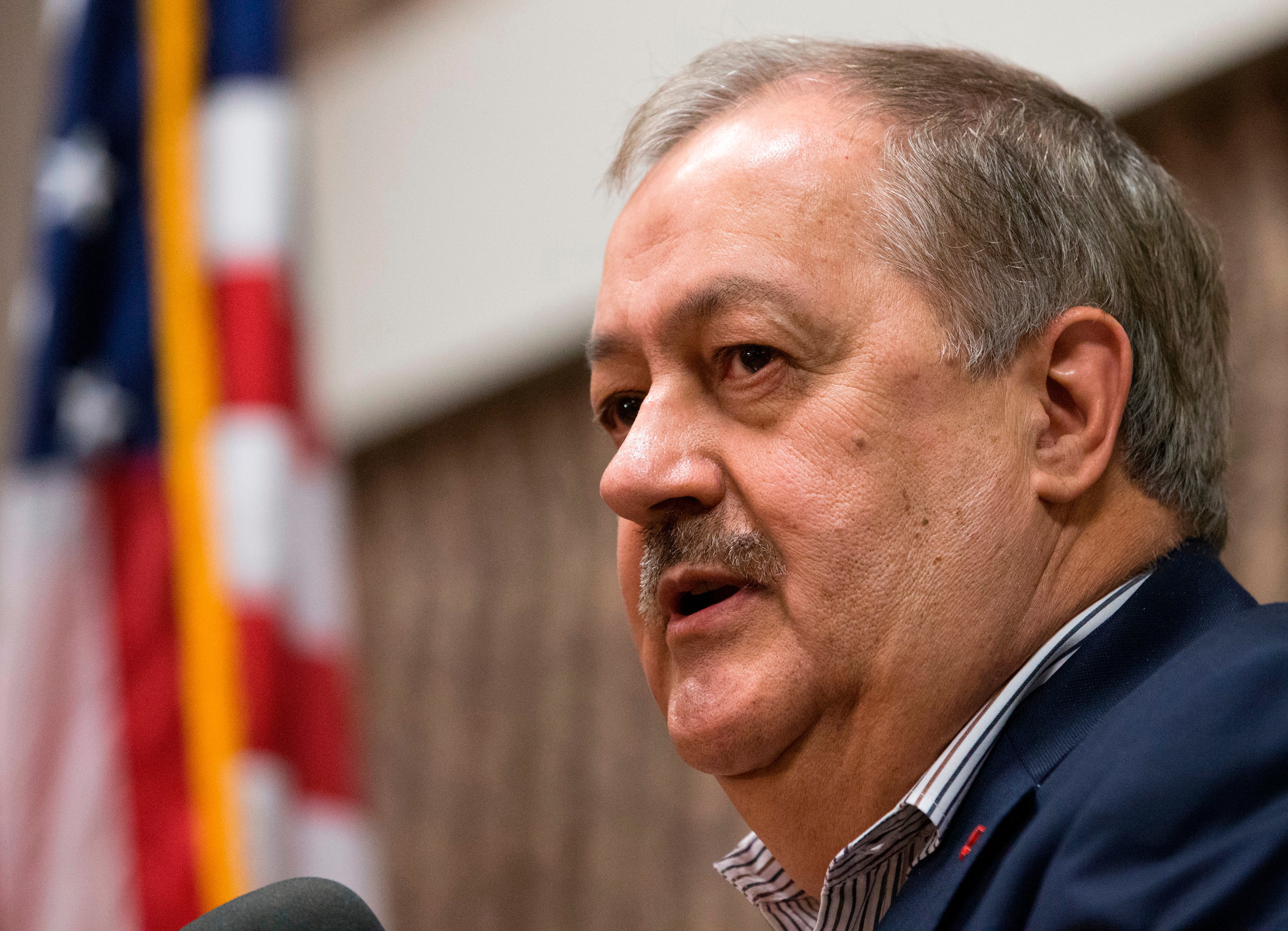Court: News outlets didn't defame ex-coal CEO Blankenship
An appeals court has ruled that Fox News, CNN and other news outlets didn’t defame former coal executive Don Blankenship when they referred to him as a “felon."

Your support helps us to tell the story
From reproductive rights to climate change to Big Tech, The Independent is on the ground when the story is developing. Whether it's investigating the financials of Elon Musk's pro-Trump PAC or producing our latest documentary, 'The A Word', which shines a light on the American women fighting for reproductive rights, we know how important it is to parse out the facts from the messaging.
At such a critical moment in US history, we need reporters on the ground. Your donation allows us to keep sending journalists to speak to both sides of the story.
The Independent is trusted by Americans across the entire political spectrum. And unlike many other quality news outlets, we choose not to lock Americans out of our reporting and analysis with paywalls. We believe quality journalism should be available to everyone, paid for by those who can afford it.
Your support makes all the difference.Fox News, CNN and other major news outlets didn't defame former coal executive Don Blankenship when they referred to him as a “felon” after he served a year in prison on a misdemeanor charge in connection with the worst U.S. mine disaster in decades, a federal appeals court ruled Wednesday.
Fourth Circuit Court Chief Judge Roger Gregory affirmed a district court's determination that 16 outlets sued by Blankenship did not act with “actual malice" amid coverage of his unsuccessful 2018 U.S. Senate campaign, even if they failed to meet journalistic standards.
"Failure to fact-check is not enough to manufacture a genuine issue of actual malice here,” Gregory wrote.
The chief judge said Blankenship's arguments are “mostly speculative and do not come close to the quantum of evidence needed to create a jury question.”
Blankenship couldn't be immediately reached for comment. His attorney didn’t return email and phone messages, and an email sent to an account listed for Blankenship could not be delivered. He did not respond to a direct message sent to him on Twitter.
The former CEO of Massey Energy, which owned West Virginia’s Upper Big Branch Mine where a 2010 explosion killed 29 workers, was indicted on several federal charges in the wake of the disaster, including multiple felony counts.
A jury ultimately acquitted him of the felony charges, but Blankenship was sentenced to one year in federal prison — the statutory maximum — on a misdemeanor charge for conspiring to violate federal mine safety laws. He was also fined $250,000.
Blankenship was released from prison in 2017. While still on supervised release in January 2018, Blankenship announced his plans to run as a Republican for U.S. Senate in West Virginia.
During Blankenship’s Senate campaign, numerous media organizations and journalists broadcast or published statements that referred to him as a “felon” or “convicted felon,” even though Blankenship’s conviction was classified as a misdemeanor.
The appeal before the Fourth Circuit court involved 16 of those organizations: Fox News, MSNBC, CNN, the Washington Post, ABC, News & Guts, Eli Lehrer, Mediaite, Tamar Auber, Griffin Connolly, FiscalNote, HD Media, NBCUniversal, CNBC, 35th PAC and the Boston Globe.
The court determined that journalists were confused about the meaning of the term “felon,” which by definition refers to someone convicted of a felony. Although Blankenship was not a “felon,” he was sentenced to serve a one-year sentence in federal prison — a rarity for a misdemeanor offense.
“Blankenship’s prison sentence placed him as close to felony status as possible,” Gregory said, adding that for “non-lawyers” describing Blankenship as a felon was not “inherently improbable,” and there were not “obvious reasons to doubt the veracity” of such a statement.
“Some of the statements may have been the product of carelessness and substandard journalistic methods,” the chief judge wrote. “But at the end of the day, the record does not contain evidence that the commentators and journalists responsible for the statements were anything more than confused about how to describe a person who served a year in prison for a federal offense.”
The Richmond-based court also upheld the lower court's decision to side with the news organizations against Blankenship’s false light invasion of privacy and civil conspiracy claims, again saying he lacked sufficient evidence.